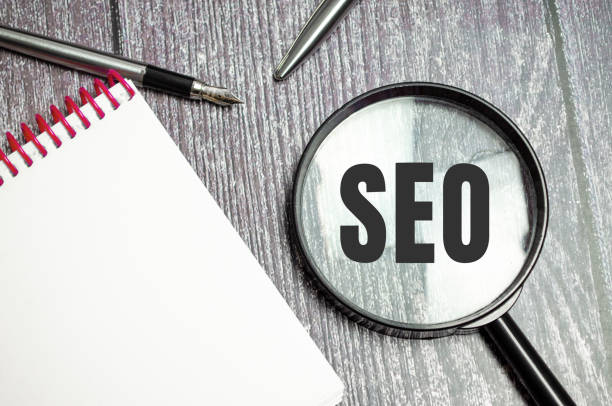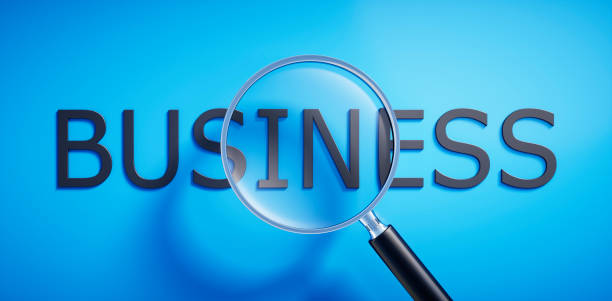Understanding Off-Page SEO and Its Importance in Website Ranking

In today’s competitive web world, merely producing high-quality content is not enough for success.
For your website to shine in #Google search results and gain organic traffic, you need a comprehensive #website_optimization strategy that includes both on-page and off-page SEO.
#Off-Page_SEO refers to a set of activities performed outside your website to increase its #domain_authority and #Google_ranking.
These activities are primarily focused on building high-quality backlinks, but not exclusively.
Off-page SEO signals to search engines that your website is a credible and reliable source in its field.
The more credibility and authority your website has in the eyes of search engines, the higher your chances of achieving top rankings in search results.
Off-page SEO is not limited to link building alone; it also includes activities such as content marketing, social media activity, brand mentions, and even off-site local SEO.
This aspect of website optimization plays a vital role in determining your website’s position against competitors.
Without a strong off-page SEO strategy, even the best on-site content might never reach the audience.
It is an essential component of the SEO puzzle that helps your website grow in authority and popularity in the online space.
Are you losing business opportunities because of an outdated website? With Rasawb, solve the problem of not attracting potential customers through your website forever!
✅ Attract more high-quality leads
✅ Increase brand credibility in the eyes of customers
⚡ Get free consultation for corporate website design
Backlinks: The Lifeline of Off-Page SEO

Backlinks, or inbound links, are considered the backbone of off-page SEO.
They act as a “vote of confidence” from one website to another.
When a reputable website links to your website, it sends a strong signal to search engines that your content is valuable and trustworthy.
The quality of backlinks is far more important than their quantity.
One backlink from a website with high Domain Authority and relevant to your niche is dozens of times more valuable than dozens of backlinks from spammy or irrelevant sites.
Google’s algorithms have become highly intelligent and can distinguish between natural, high-quality links and manipulated, unnatural links.
Therefore, focusing on acquiring links from reputable and relevant sources should be your main priority in your off-page SEO strategy.
There are various link-building techniques, including publishing valuable content (to attract natural links), guest posting on relevant sites, broken link building, participation in specialized forums, and digital public relations.
Each of these methods requires time, effort, and a specific strategy to bring the best results in improving your website’s position.
Analyzing competitors’ backlink profiles can also provide valuable clues about link-building opportunities for you.
Ultimately, backlinks not only increase website authority but can also drive referral traffic to your site.
Types of Backlinks and Their Role in SEO Strategy

Backlinks are not just one type; they can have different forms and qualities, each playing a specific role in your off-page SEO strategy.
Understanding these differences is essential for building a diverse and powerful link profile.
One of the most common types is editorial links, which occur naturally when a website links to you because of the value of your content.
These are considered the most valuable type of link.
Another type is guest posting, where you write content for another website and receive a link back to your site in return.
Directory links from listings in web directories and forum links can also be part of your strategy, although their value is less than editorial links and they should be used cautiously.
Broken links create good opportunities for link building; by finding broken links on other sites and suggesting your similar content as a replacement.
Also, dofollow and nofollow links have a major difference in how they pass “PageRank” or authority to your site.
While dofollow links directly impact SEO, nofollow links (often from social media or comment sections) can still increase referral traffic and brand awareness.
A mix of different backlink types creates a natural and strong link profile that is more valuable in Google’s eyes.
| Backlink Type | Description | SEO Value | Example |
|---|---|---|---|
| Editorial Link | A natural link from a reputable site’s content due to the value of your content. | High (Most Authority) | Reference in a news article or specialized blog post |
| Guest Post | Writing an article for another site in exchange for a link back to your site. | Medium to High (depends on host site quality) | Article on a relevant industry blog |
| Directory and Forum | Listing in directories or participation in specialized forums. | Low to Medium (should be used cautiously) | Link from Yellow Pages or a specialized forum |
| Broken Link Building | Finding broken links on sites and suggesting your content as a replacement. | Medium to High (effective and natural) | Replacing an old source link with your updated content |
White Hat vs. Black Hat Link Building: The Ethical Boundaries of SEO

In the realm of off-page SEO, the distinction between white hat and black hat link building is of paramount importance.
White hat link building refers to a set of ethical and sustainable methods that comply with Google’s guidelines.
These methods focus on acquiring natural and valuable links through excellent content creation, building relationships with bloggers and journalists, and digital public relations activities.
The main goal of these methods is to genuinely increase website credibility and authority in the long term.
Examples of white hat link building include viral content marketing, PR for link acquisition, and genuine participation in online communities.
In contrast, black hat link building includes illicit and manipulative techniques aimed at deceiving search engines to achieve high rankings in the short term.
These methods can include buying and selling links, mass link exchanges, using private blog networks (PBNs), and spamming blog comment sections.
While these techniques may yield quick results initially, they significantly increase the risk of being penalized by Google.
Google penalties can lead to a drastic drop in ranking or even complete removal of the website from search results, which is very difficult to recover from.
For a sustainable and successful off-page SEO strategy, it is always recommended to follow white hat methods and avoid any black hat techniques that could harm your brand’s reputation.
Google’s Webmaster Guidelines are an excellent resource for further understanding these concepts.
Falling behind in the competition with large online stores?
Rasawb, with professional e-commerce website design, brings your business online and increases your market share!
✅ Boost brand credibility and customer trust
✅ Easy shopping experience leading to more sales
⚡ Act now to get a free website design consultation!
Competitor Analysis in Off-Page SEO: How to Outrank Your Rivals?

One of the most powerful strategies in off-page SEO is thorough analysis of competitors’ backlink profiles.
By examining where your main competitors are getting links from, you can identify new and valuable link-building opportunities for your own website.
This analysis helps you understand their successful strategies and find gaps in your own approach.
Numerous SEO tools like Ahrefs, Moz, Semrush, and Majestic allow you to examine competitors’ backlinks.
Using these tools, you can access information such as the Domain Authority (DA) and Page Authority (PA) of linking sites, the anchor texts used, and the total number of inbound backlinks.
Focusing on links that competitors have acquired from reputable and relevant sites can be very beneficial.
Also, checking for broken links on sites that link to competitors is an opportunity for you to gain links by suggesting your content as a replacement.
Competitor analysis is not limited to mere copying; it should inspire you to find more creative approaches to acquiring links.
For example, if competitors have acquired links through guest posts, you can write deeper and higher-quality guest posts for even better quality sites.
This process is continuous and should be performed periodically to ensure your strategy remains up-to-date.
This analytical approach removes guesswork from your off-page SEO and builds it upon proven data and opportunities.
The Role of Social Media in Improving Off-Page SEO

Although direct links from social media are often “nofollow” and do not directly pass SEO authority, social media plays an undeniable role in indirectly improving off-page SEO.
Strong activity on platforms like Instagram, LinkedIn, Twitter, and Facebook can lead to increased Brand Awareness.
The more well-known your brand is and the more it is discussed online, the higher the likelihood that individuals and websites will naturally link to your content.
This is what is referred to as “social signals”, and although they are not directly involved in the ranking algorithm, they can indirectly affect off-page SEO.
Sharing your website’s content on social media can lead to increased referral traffic.
This traffic can increase user dwell time on the site and reduce the bounce rate, all of which send positive signals to Google.
Furthermore, being active on social media can help you build a community of loyal followers who share and react to your content, which in turn can lead to increased visibility and ultimately, acquiring natural backlinks.
Additionally, social media allows you to connect with influencers and thought leaders in your industry, which can pave the way for high-quality link-building opportunities through collaborations or guest posts.
Therefore, while social media should not be viewed as a direct link-building strategy, their role in strengthening brand credibility and attracting organic backlinks in an off-page SEO strategy is undeniable.
Key Metrics for Evaluating Backlink Quality

Evaluating backlink quality is crucial for the success of your off-page SEO strategy.
Simply having a large number of backlinks is not enough; you must ensure their quality and relevance.
Several key metrics help you assess the value of a backlink: Domain Authority (DA) and Page Authority (PA) are metrics developed by Moz that predict how likely a website or page is to rank in the SERPs.
The higher these numbers, the more authority is passed from the link.
Relevance is another very important factor; a link from a site relevant to your niche is far more valuable than a link from an irrelevant site, even if it has high DA.
Anchor Text also matters.
The anchor text should be relevant to the content of the destination page, but over-optimization using too many keywords should be avoided to appear natural.
The placement of the link on the page is also important; links located within the main content of the page (Editorial Content) are usually more valuable than links in the footer, sidebar, or comments.
Trust Flow and Citation Flow from Majestic are also other metrics that measure the credibility and popularity of links.
A comprehensive evaluation of these metrics helps you identify the best link-building opportunities and avoid low-quality links that might harm your ranking.
These insights are essential for building a powerful link profile in your off-page SEO strategy.
| Metric | Description | Why it’s important? |
|---|---|---|
| Domain Authority (DA) / Page Authority (PA) | A score given by Moz to predict the ranking of a site/page. | Indicates the authority and credibility of the linking site. |
| Relevance | The degree to which the content of the linking site is relevant to your site’s content. | Google considers relevant links more natural and valuable. |
| Anchor Text | The clickable text that links to your site. | Helps Google understand the topic of the destination page; must be natural. |
| Link Placement | The position of the link on the page (content, footer, sidebar). | Links within the main content (Editorial) have the most value. |
| Trust Flow / Citation Flow | Majestic’s metrics for assessing the quality and quantity of links. | Indicates the trustworthiness and popularity of the linking site. |
Common Off-Page SEO Mistakes to Avoid

In implementing an off-page SEO strategy, there are some common mistakes that can harm your website’s ranking instead of improving it.
Understanding and avoiding these mistakes is essential for a successful and sustainable approach.
The first and perhaps most dangerous mistake is buying links or participating in mass link exchange schemes.
These methods are explicitly forbidden by Google and can lead to manual or algorithmic penalties, resulting in your website’s removal from search results.
The second mistake is focusing solely on the quantity of links rather than their quality.
A backlink from a low-quality or spammy site not only provides no value but can also send negative signals to Google.
Always seek links from reputable and relevant sites.
The third mistake is ignoring anchor texts.
Over-optimization by using one specific anchor text excessively or using irrelevant anchor texts can appear unnatural.
Diversity in anchor texts is crucial.
The fourth mistake is not monitoring your backlink profile.
Spammy or malicious links (Negative SEO) might be created pointing to your site.
Regular monitoring and using Google’s Disavow Tool to disavow harmful links are vital.
The fifth mistake is neglecting the speed and user experience of the linking host site.
If a link comes from a site with poor user experience or slow speed, it might have a negative impact.
Finally, inconsistency in your link-building strategy is also a mistake.
Link building should be a continuous and long-term process, not a one-time campaign.
By avoiding these mistakes, you can build a safe and effective off-page SEO strategy for your website.
Are you losing business opportunities because of an outdated website? With Rasawb, solve the problem of not attracting potential customers through your website forever!
✅ Attract more high-quality leads
✅ Increase brand credibility in the eyes of customers
⚡ Get free consultation for corporate website design
Off-Page SEO for Small Businesses and Startups

For small businesses and startups, which often have limited financial and human resources, implementing an off-page SEO strategy can be challenging.
However, by focusing on smart and effective methods, significant results can be achieved.
The first step is to produce extremely high-quality and valuable content that naturally attracts links.
Outstanding content (e.g., an in-depth case study, a comprehensive infographic, or a complete guide) can be an effective link magnet (link bait).
Second, focus on local SEO.
Registering your business in local directories, Google My Business, and other local platforms not only helps acquire links but also attracts local customers.
Third, actively participate in forums and groups related to your industry.
By providing useful and valuable answers and including links to your relevant content (where permitted), you can build credibility and attract targeted traffic.
Fourth, pursue a guest posting strategy in a targeted manner.
Instead of pitching to large, highly competitive sites, focus on smaller but relevant and quality sites that are more likely to accept your post.
Fifth, leverage digital public relations.
By sending engaging press releases and building relationships with journalists and bloggers, you can gain media coverage and valuable links.
Sixth, monitor for broken links on relevant sites and offer your content as a replacement.
This is a cost-effective and efficient way to acquire links.
Remember that in off-page SEO, patience and consistency are key to success.
Even with limited resources, a smart and targeted strategy can significantly help improve your website’s ranking in search results.
The Future of Off-Page SEO and New Trends in Website Optimization

The world of SEO is constantly evolving, and off-page SEO is no exception.
Understanding future trends can help you adjust your strategies to maintain a competitive edge.
One of the most important trends is Google’s increasing focus on the “E-E-A-T” concept (Experience, Expertise, Authoritativeness, Trustworthiness).
This means that Google is increasingly looking for sources that not only have high authority but also demonstrate real experience and expertise in their field.
Therefore, digital public relations, acquiring brand mentions, and highlighting the expertise of authors will become increasingly important.
Diversity in the link profile will also remain a critical factor.
Solely relying on one type of link building (e.g., only guest posts) can be risky.
Having a mix of editorial links, brand mentions, and presence in reputable directories creates a more natural and stronger link profile.
With the advancement of Artificial Intelligence and Google’s algorithms, search engines’ ability to understand natural language and user intent is increasing.
This means that the quality and relevance of the linking content to your content will become more important than ever.
Also, the role of User Experience (UX) and User Signals in ranking will indirectly affect off-page SEO.
A site with excellent UX is likely to keep users longer and have a lower bounce rate, which sends positive signals to search engines.
Ultimately, off-page SEO is moving towards a more comprehensive and “brand-centric” approach, where building real credibility and trust will be the most important factor for long-term success.
Frequently Asked Questions (FAQ)
| Question | Answer |
|---|---|
| What is Off-Page SEO? | Off-page SEO refers to a set of activities and methods performed outside your website to improve its ranking in search engines, such as building backlinks. |
| Why is off-page SEO important for a website? | Off-page SEO shows search engines that your website is credible, popular, and trustworthy, which helps increase domain authority and ranking. |
| What is the most important factor in off-page SEO? | Backlinks, or links from other sites to your site, are the most important factor, especially if they are from reputable sites. |
| What are the characteristics of a quality backlink? | A quality backlink comes from reputable sites (with high authority), is relevant to your site’s topic, and has appropriate (natural) anchor text. |
| Do social media play a role in off-page SEO? | Yes, sharing content on social media can help increase visibility and indirect traffic and send positive social signals to search engines. |
| What is PBN and is it recommended? | PBN (Private Blog Network) is a network of private websites used to build backlinks to the main site. Google considers this method spam, and its use is strongly prohibited and can lead to penalties. |
| How is Natural Link Building done? | By creating valuable and shareable content, building relationships with bloggers and influencers, and attracting media attention. |
| What is Anchor Text in backlinks? | It is the clickable text where the link is placed. Using diverse anchor texts relevant to the keyword appears more natural and helps with SEO. |
| What is the connection between Local SEO and Off-Page SEO? | Local SEO includes off-site activities such as registering in Google My Business, local directories, and getting online reviews, which help businesses appear in local search results. |
| How can competitors’ backlinks be analyzed? | Using tools like Ahrefs, Semrush, or Moz, you can analyze competitors’ backlink profiles and identify new link-building opportunities. |
And other advertising services of RasaWeb Advertising Agency:
Smart Direct Marketing: Designed for businesses seeking digital branding through custom programming.
Smart Digital Branding: A dedicated service for growth in customer acquisition based on the use of real data.
Smart Marketing Automation: Revolutionize customer acquisition with the help of SEO-driven content strategy.
Smart Data Analysis: A combination of creativity and technology to increase sales through the use of real data.
Smart Digital Branding: Designed for businesses seeking digital branding through intelligent data analysis.
And over a hundred other services in the field of internet advertising, advertising consultation, and organizational solutions.
Internet Advertising | Advertising Strategy | Advertorials
Sources
What is Off-Page SEO?Comprehensive Off-Page SEO GuideOff-Page SEO TechniquesImportance of Off-Page SEO
? In today’s competitive world, a strong online presence is key to your success. Rasawb Afarin, by providing comprehensive digital marketing solutions including responsive website design, SEO, and social media management, will elevate your business to its peak. Build your digital future with us.
📍 Tehran, Mirdamad Street, Next to Central Bank, Kazeroon Southern Alley, Ramin Alley, No. 6



